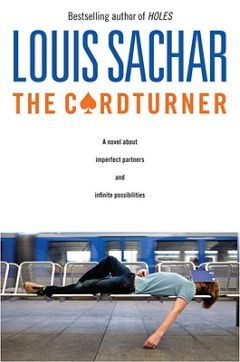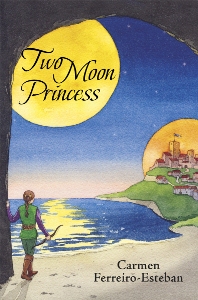This review contains affiliate links, which earn me a small commission when you click and purchase, at no extra cost to you. Thank you for supporting my small business and allowing me to continue providing you a reliable resource for clean book ratings.
This book is about bridge. The game. I know squat about bridge (except that it’s a card game), yet I found myself fascinated by this book. Sure, it helps that it’s written by Louis Sachar, and it helps that our main character, Alton, is quite likable, and it helps that there’s more to it than bridge, but really: the book is about bridge. There’s no getting around it. There are bridge terms, and lots and lots of descriptions about bridge games, and at first you won’t get it, but by the end you’ll want to play a hand or two, just to see what everyone is talking about.
Seventeen-year-old Alton is not exactly what you’d call an overachiever. He was going to get a summer job — really — but then an opportunity fell in his lap: his great-uncle Lester Trapp is a bridge player, but he’s blind. He needs someone to sit with him and let him know what the cards are and then play the cards he tells him to. It’s an easy job; not fun, but easy. Except, after a while hanging around Trapp and the game, Alton begins to realize something: it’s interesting. It’s intriguing. And what if — 40 years after he last tried — Trapp could win a national championship? Of course, there are some bumps along the way (not to mention a breakdown, a death, a romance and a little bit of underhandedness), but it all manages to work out in the end, for the best. Call it fate, or call it synchronicity, but it works.
It works, primarily, because of the narration. For starters, because Alton’s about as clueless at bridge as we are (I’m assuming you’re as clueless as I am), it helps that he stops and explains it as we go. Amazingly, it doesn’t halt the plot, but it’s woven into it almost seamlessly. (It does stop it a little, but I was interested in it; Sachar does provide an out: you can skip the explanation sections and just read the summary box if you want.) It helps that Alton is a pretty genial kid; funny and self-deprecating, and yet somehow determined to win his great-uncle’s respect. You can’t help but root for a kid like that. It’s actually filled with likable characters (the only people I really didn’t like were Alton’s parents, who were a bit too money-digging for my taste, but thankfully they got marginalized as the book went on), which is one of the reasons it was a delight to read.
I enjoyed the book, yet I wonder about its success: really, who’s going to want to read a book about bridge? Especially in the YA crowd. I’d recommend it, saying, “Trust me. Yes, it’s about a card game that no one really plays anymore, but it’s actually, surprisingly quite good.”
Promise.
Rated: None
Click here to purchase your copy of The Cardturner on Amazon.





Isn’t it awesome when a book sucks you in even though you initially have no interest in the subject matter? That is powerful writing!
My sons and I read this book last week, out loud, in a group. They are 15 & 19, and all three of us enjoyed the story very much. My wife joined us for the last half, since she had heard enough to get interested as well.